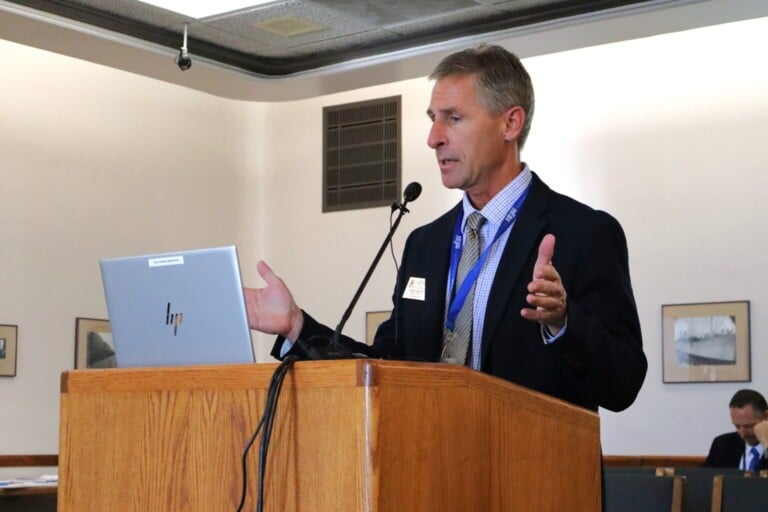Federal megalaw to reduce state tax collections in North Dakota

BISMARCK, N.D. (North Dakota Monitor) — The North Dakota Tax Department estimates the state’s income tax collections will take a sizable hit as a result of federal tax legislation, though the impact will be smaller than in many other states.
Matt Peyerl, associate director of tax administration for the department, told lawmakers on Tuesday to expect an estimated $129 million reduction in individual and corporate tax income collections during the 2025-27 budget cycle due to the 10-year budget reconciliation law.
That equates to approximately 9% of the state’s individual and business income taxes and 2.5% of the state’s total tax and fee revenues collected in the 2023-25 biennium.
The reduction in income tax collection is expected to decrease to $93 million in the 2027-29 biennium, according to the tax department’s estimates, before falling off to $26 million in the 2029-31 biennium when many of the changes expire.
“A lot of the individual changes fall off after four years,” Peyerl said.
That leaves a lot of uncertainty when trying to project farther than four years out because Congress could choose to extend the changes. Even estimates for the next few years are dependent on a lot of variables.
“For now they’re the best I have,” Peyerl told members of the Legislature’s interim Tax Reform and Relief Advisory Committee.
He said there will be some clarity on the impact to state revenues in summer 2026 once the majority of this year’s tax returns are filed.
Peyerl noted the impact on North Dakota is anticipated to be less than more populous states with higher tax rates and a lower percentage of the population falling into a “zero bracket,” where they pay no income tax. In North Dakota, residents don’t pay state income tax if they make less than $48,475 for single filers, or $80,975 for married couples.
Some states will see impacts from the federal legislation in the hundreds of millions or nearly $1 billion, Peyerl said.
For North Dakota, the largest impacts to individual income tax will come from the exemption for overtime pay, the increased standard deduction that applies to all filers, an additional $6,000 tax deduction for some senior citizens, and the deduction for auto loan interest payments up to $10,000.
Business tax revenues will be reduced by restoring corporations’ pre-2023 ability to expense bonus depreciation, as well as research and development costs.
While these changes were made at the federal level, and not by the North Dakota Legislature, it will nonetheless affect the state’s tax collections.
“North Dakota is entirely coupled, for better or for worse,” Peyerl said, with the federal government’s system.
That means North Dakota conforms to the federal Internal Revenue Code, including any changes made by the U.S. Congress, unless the state’s lawmakers pass a law stating otherwise.
“Most of the states are in similar positions where to one extent or another they’re tied to the federal system,” Peyerl said. “Some are more completely tied. Some are tied in between.”
Not all federal tax legislation affects North Dakota’s tax collections. Changes to tax credits, for example, don’t have an effect on how much revenue North Dakota receives.
North Dakota Monitor reporter Jacob Orledge can be reached at jorledge@northdakotamonitor.com.






